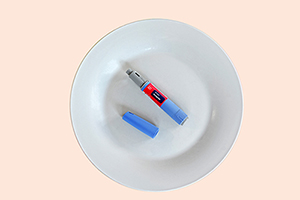Finding safe and truly effective weight loss drugs has long been the Holy Grail of Big Pharma. Along with cures for cancer, Alzheimer’s, and other scourges, a panacea for obesity ranks high among its priorities. With over half of Americans exceeding optimal weight, and amid a worldwide trend of surging pounds, a breakthrough would be a big deal.
Previous attempts have foundered. Drugs were minimally effective, or if they worked, they did so at the cost of unacceptable GI symptoms, cardiovascular danger, or speedy jitters.
The humble Gila monster spawned a revolution. Able to fast for long periods of time in harsh desert conditions, its metabolism yielded to researchers the secret sauce that resulted in GLP-1 agonists like the semaglutides, drugs that reverse insulin resistance, slow gastric emptying resulting in a feeling of fullness, and trigger satiety in the brain.
Originally intended only for diabetics, the new class of drugs had a fortuitous side effect: Patients reliably lost weight, on the order of 15% of their bulk, within a year or so on average. Soon, their potential as weight loss drugs was realized.
I’m seeing it in my practice. The other day, one of my regular patients, who lives in Europe, came in for her annual. I was taken aback by her appearance. For years she had struggled to shed an extra 15 or 20 pounds. I had counseled acceptance, since she was otherwise healthy. But now she was transformed. I said: “You look amazing! Don’t tell me—you took . . .” “Yes,” she cut me off, “Ozempic.”
All told, she dropped 35 pounds in just under 18 months. She related how she had felt sick and exhausted when she started the weekly shots; she was nauseous all the time and alternated between diarrhea and constipation. But so determined was she to lose weight that she persevered. Fortunately, the symptoms mostly abated after a few months.
I asked her how she got a hold of it, given that it’s approved only for diabetics, people with a really high BMI, or those whose medical conditions urgently call for weight loss. Merely shaving off a few undesirable pounds for aesthetic reasons is still considered an “off-label” indication for Ozempic. Besides, there are worldwide shortages caused by intense demand. When not covered by insurance, these drugs retail for around $1400 per month.
She said she has a connection in Europe, where Ozempic costs only $300-400 per month. She’s well off, so the prospect of staying on it for years doesn’t daunt her.
But she illustrates a fundamental problem with these drugs: with such dramatic weight loss, you’re bound to use significant lean body mass. And muscle reserve is an important hedge against sarcopenia, the process by which the aging physique inexorably marches toward frailty.
Indeed, she had lost muscle, and her latest body composition analysis showed that while ostensibly svelte, her body fat percentage verged on the high end for middle-aged females at over 30%.
When drastically calorie-restricted, the body cannibalizes muscle for energy; while taking drugs that slash appetite, it’s hard to consume enough protein to sustain lean mass. Concerted resistance training can preserve muscle volume only to a certain extent.
In the Step 1 Trial that first demonstrated the potential for semaglutide to dramatically cut pounds, lean mass accounted for approximately 39% of total weight loss—far from ideal.
Additional side effects include pancreatitis (rare), “Ozempic face” from too much fat loss in subcutaneous facial tissue (spawning a surge in facelifts), and bizarre dreams. Losing weight too fast hikes the risk for gallstone attacks, and some patients with hereditary endocrine diseases should avoid these drugs entirely.
And preliminary studies reveal that, upon cessation of these meds, subjects typically regain about 3/4 of their lost weight, and sometimes rebound to higher weights, as so often happens to “The Biggest Losers” after draconian caloric restriction. The high price of these meds, frequent unavailability, and side effects that some users find intolerable make it likely that many will find it difficult to sustain lifelong maintenance.
A new injectable drug, Mounjaro, may eclipse Ozempic and its ilk (injectable Wegovy, and oral Rybelsus) because it’s even more effective, promising 20% or more of weight loss in obese subjects. It boasts dual action, teaming semaglutide with a novel GIP agonist. More blockbuster drugs are likely in this lucrative pipeline.
Does this threaten to upend the multi-billion dollar weight loss industry? Weight Watchers is already retooling as a company that will offer diet advice along with convenient dispensing of prescription weight loss meds.
Besides, untold millions of yo-yo dieters will attest that virtuous eating and exercise will only go so far. In fact, a recent study concludes, “Calorie Counting and Exercise ‘Of Limited Value’ for Obesity Weight Loss”.
The survey of overweight adults in six European countries claimed that “most who set out to reduce a meaningful amount of weight failed in their attempt . . . 78% of the individuals who attempted to lose weight did not achieve a clinically meaningful loss of 5% or more of their body weight, while some actually weighed more afterwards.”
But a reading of the fine print conflict-of-interest disclosure reveals that the study was sponsored by Novo Nordisk A/S, the maker of Ozempic, Wegovy, and Rybelsus and employer of several of the co-authors!
In fact, Novo Nordisk was recently suspended from the Association of the British Pharmaceutical Industry (ABPI) for two years for its “serious breaches” of the group’s code of practice; it was said to have sponsored courses on weight management for health professionals without disclosing its involvement.
Undaunted, Novo Nordisk’s revenue within Diabetes and Obesity care surged by 31% to $7.0 billion in Q1 of 2023, mainly driven by GLP-1 sales.
Dramatic natural weight loss is achievable without these drugs, although it’s hard. I often cite the example of Sue Reynolds, who at age 60 weighed 335 pounds, and by dint of extraordinary determination lost 200 pounds via diet and intense exercise and became a competitive triathlete; she now keeps weight off with arduous daily workouts. She tells her remarkable story on one of our podcast episodes and in her book The Athlete Inside
Admittedly, she’s a rare exception. My prediction is that these weight loss drugs will be embraced by tens of millions who are desperate for results. Their long term sustainability and safety remain unanswered questions. In future years, their use will be vindicated, or, as with many once-popular and now shunned remedies, they’ll be relegated to medicine’s scrap heap.
Meanwhile, I’m sticking to my guns as a non-prescriber of weight loss drugs. They don’t square with my philosophy that natural methods should take precedence over artificial fixes. I’ll support the decision of some of my patients to obtain these drugs from endocrinologists and bariatric specialists who can properly supervise their use, just as I now help patients who’ve undergone gastric bypass with tailored nutritional advice.
I agree with a recent cautionary opinion piece in JAMA:
“The justified excitement surrounding new-generation weight loss drugs should not lead to deprioritizing development of nonpharmacologic interventions aimed at the root causes of the epidemic. At $1400 per month, GLP-1 treatment of all adolescents with obesity in the US would cost approximately $100 billion annually. Treatment of all adults with obesity would cost approximately $1 trillion . . . Beyond cost considerations, reliance on drugs for weight control could require lifelong treatment because rapid weight regain occurs after their discontinuation. Although GLP-1s have a good track record of safety, we cannot yet know the potential risks of long-term treatment, begun in adolescence, with this or any drug that modulates fundamental metabolic pathways. Efficacious dietary and behavioral strategies will be needed, if only to prevent weight regain, as people discontinue drug treatment. Furthermore, diet affects health beyond weight control. Even with a population-level decrease in weight from GLP-1 drugs a low-quality diet could still leave this generation of adolescents at elevated lifetime risk for cardiovascular disease, cancer, and other chronic conditions, independent of weight . . . Especially for children, diet and lifestyle must remain at the forefront of obesity prevention and treatment.”







